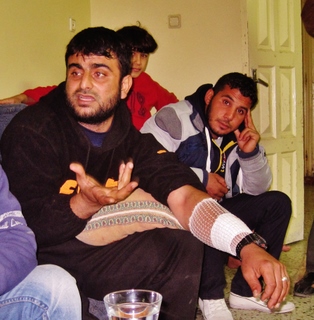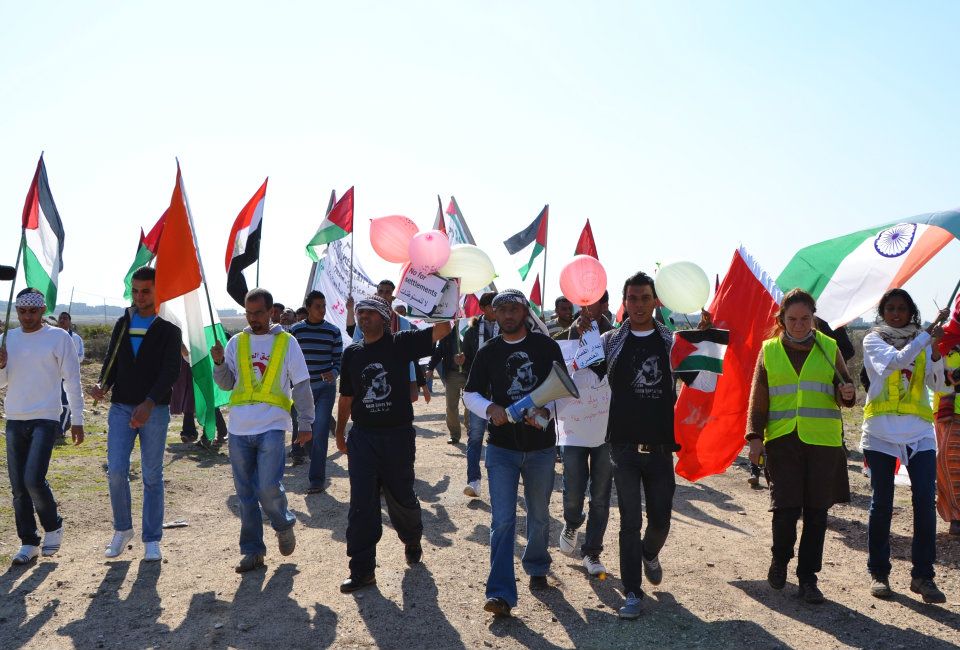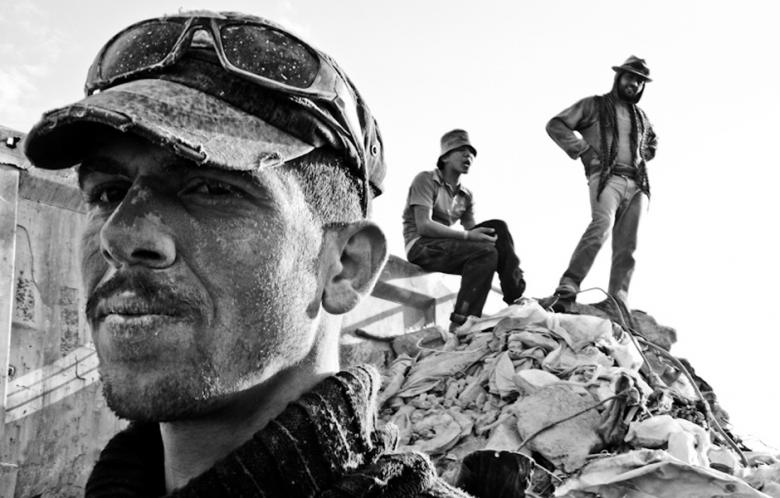Tag: Gaza
-

Israeli navy shoots Palestinian fisherman who sued Israel, kidnaps at least nine others in Gazan waters
by Radhika Sainath 30 November 2011 | Notes from Behind the Blockade The Israeli navy violently seized two Palestinian trawlers in Gazan waters yesterday, shooting one fisherman in the arm, and ultimately forcing at least ten men to Ashod, Israel, where they were interrogated for several hours. Israel released all of the fishermen at 2…
-

International Day of Solidarity with the Palestinian People in the no go zone
by Nathan Stuckey 30 November 2011 | International Solidarity Movement, Gaza Today, Tuesday, November 29, 2011 is the International Day of Solidarity with the Palestinian People. This day commemorates the racist and colonialist proposal of the United Nations to partition Palestine in 1947. All over the world, people stood in solidarity with the Palestinian struggle…
-

Gaza: Rebuilding from rubble
by Ruqaya Izzidien 29 November 2011 | Al Akhbar English Despite Israel’s blockade on building materials entering the Gaza Strip, local entrepreneurs have come up with a way to turn destruction into reconstruction by recycling rubble into construction material. The bedroom of Nasser Abu Said features two-meter holes punched by Israeli rockets and his front…
